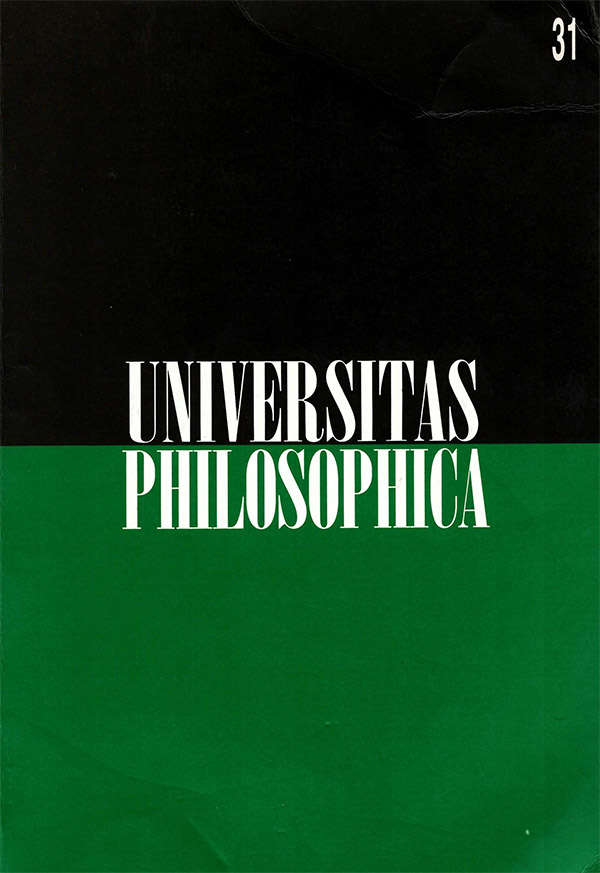Abstract
This paper presents the problem of the theodicea in modern philosophy as a rational strategy to face the precariety of human existence and the real precence of evil in the world.The leibnizian theodicea takes on the defence of the causa dei as a defence of the causa rationis, and this metaphisical project displays at the begining a far reaching search of justifications legitimating the rational world order. Alter this viewpoint evil becomes a sort of conditio sine qua non of the full revelation of reality. Theodicea asumes that creation as such ís a rational one. God can not act out of the order. The aim of this strategy, legitimating the perfect and rational order of creation is examined at the light of the there of Hans Blumenberg, shows how the central formulations of modern philosophy are the offsprings os a structural confrontation between theological absolutism and the burgeois desire of human selfaffimation. The anthropological model corresponding to this proyect is the burgeois idea of the horno compensator. The attempts to provide an ultimate meaning to reality, are condemned to failure, since they are established in the illusion of the fact that there is an ontological correspondence between the world and the human existence.This journal is registered under a Creative Commons Attribution 4.0 International Public License. Thus, this work may be reproduced, distributed, and publicly shared in digital format, as long as the names of the authors and Pontificia Universidad Javeriana are acknowledged. Others are allowed to quote, adapt, transform, auto-archive, republish, and create based on this material, for any purpose (even commercial ones), provided the authorship is duly acknowledged, a link to the original work is provided, and it is specified if changes have been made. Pontificia Universidad Javeriana does not hold the rights of published works and the authors are solely responsible for the contents of their works; they keep the moral, intellectual, privacy, and publicity rights.
Approving the intervention of the work (review, copy-editing, translation, layout) and the following outreach, are granted through an use license and not through an assignment of rights. This means the journal and Pontificia Universidad Javeriana cannot be held responsible for any ethical malpractice by the authors. As a consequence of the protection granted by the use license, the journal is not required to publish recantations or modify information already published, unless the errata stems from the editorial management process. Publishing contents in this journal does not generate royalties for contributors.


